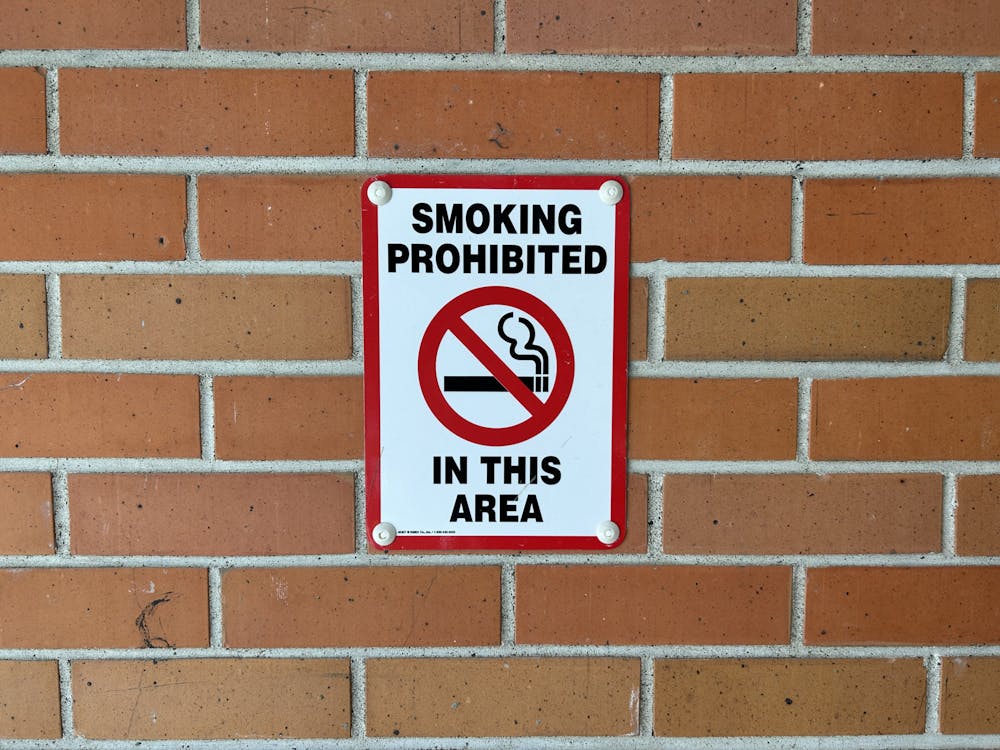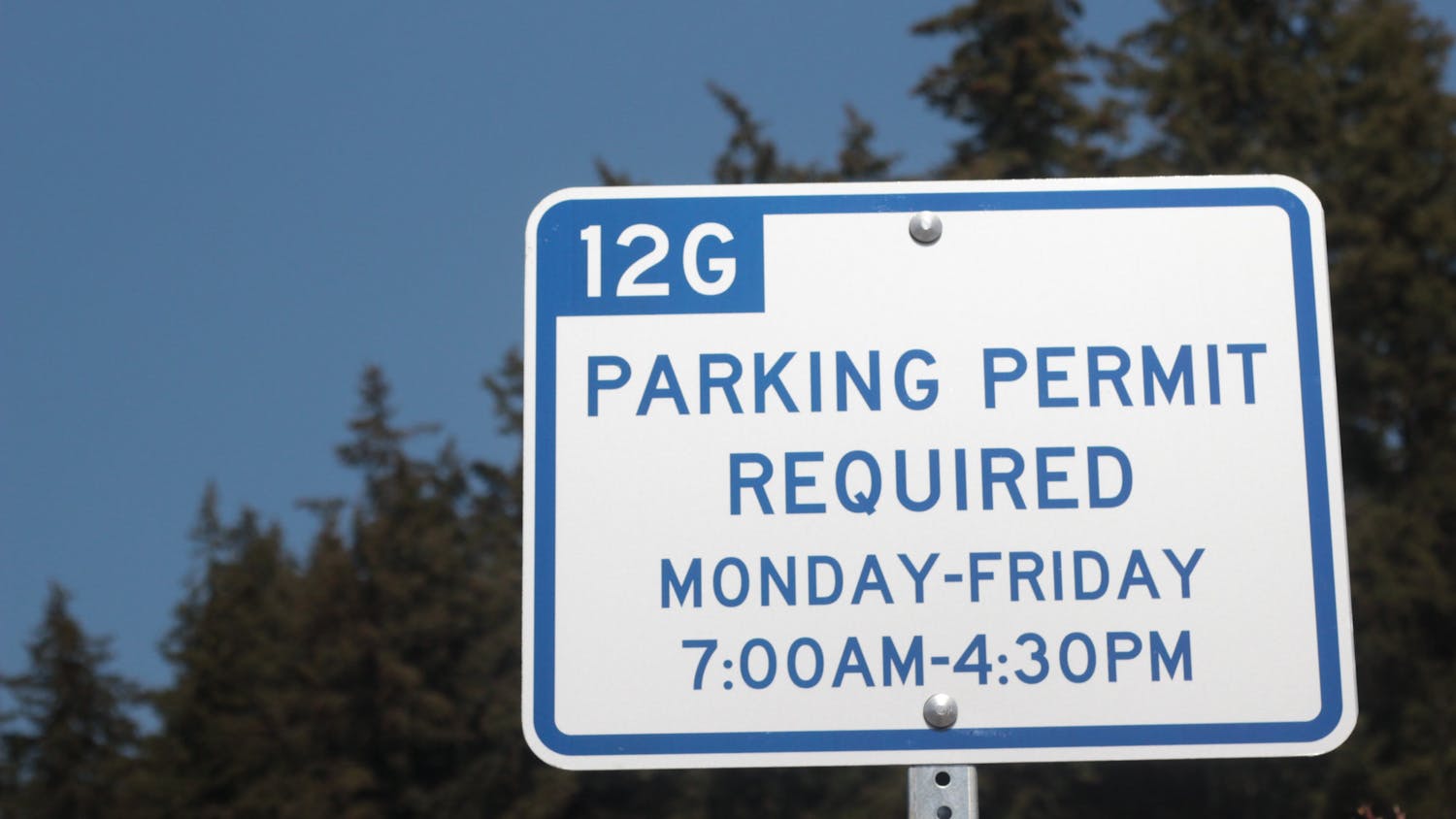On May 9, Western Washington University held a public hearing to discuss the President’s Cabinet’s move toward enforcing a fully smoke-free campus to be imposed in the 2022-23 academic year.
Smoking, as defined by Western’s Smoke-Free Campus Task Force, is “directly inhaling or exhaling smoke from, burning or carrying any lit smoking instrument or using an electronic cigarette or vaporizing device.”
Western’s current policy prohibits all smoking on campus with the exception of identified outdoor smoking areas. The proposed amendment to this policy will take this one step further, restricting smoking and vaping of any kind, anywhere on campus.
The only exception to this restriction, according to the task force, is that “smoking may be permitted for university-approved events that include cultural or religious uses, academic research or theatrical productions.”
“This conversation has been going on a long time — it was going on when I came to work here in 2003,” said Bruce Boyer, the interim director of the environmental, health and safety department at Western.
The history of smoking policies at Western goes back to 1994 when smoking was first restricted inside and around campus buildings. Further restrictions were slow to develop up until 2018.
“The Central Health and Safety Committee made a recommendation to the Vice President of Business and Financial Affairs Committees … for a smoke-free campus area,” Boyer said. “His response was to request a survey of the campus and that survey indicated that people wanted a more restrictive smoking policy.”
The survey, administered in 2019, provided three policy options:
A. No smoking within 25 feet of building entrances, air intakes and operable windows.
B. Smoking is only allowed in designated areas outside of main walkways.
C. Ban smoking entirely.
Of all students, staff and faculty at Western, 54.5% favored the second option of having designated smoking areas, which led to the policy change.
Further discussion on smoking policies was suspended during the COVID-19 pandemic.
In spring 2022, the Smoke-Free Campus Task Force was formed to pursue advancements in Western’s policy. The task force members consist of a wide range of campus representatives and are listed on the BFA Committees page.
“[The decision to amend current policy] is consistent with many other higher education institutions moving towards smoke-free campuses,” said Joyce Lopes, vice president of Business and Financial Affairs, in an email this past December addressing the efforts of the task force. “The COVID-19 pandemic also brought about additional concerns for respiratory health, increasing awareness on this topic.”
In 2017, the Centers for Disease Control and Prevention reported the number of colleges and universities with smoke-free policies had doubled since 2012.
“Efforts to monitor, promote, implement and enforce smoke and tobacco-free policies in U.S. colleges and universities can help reduce the prevalence of tobacco product use and secondhand smoke exposure among those who learn, live, work and gather in these environments,” according to the report.
As of April 2023, the American Nonsmokers' Rights Foundation further cited an increase in smoke-free college campuses, stating “there are now at least 2,612 100% smoke-free campus sites” in the U.S.
While Western is not alone in its push for a smoke-free campus, public comments during the May 9 hearing did not favor such a proposal.
“To ban smoking on campus is singling out one group, very prejudiced and not standing with what the university represents,” said Tom Yakovonis, a public commenter.
This sentiment was shared by the majority of public comments, represented by an array of self-identified smokers, past smokers and non-smokers.
“Since smoking cigarettes is an addiction, all students, faculty and other workers who are required to be on campus, sometimes all day, need and deserve spaces to smoke,” said Noah Gray, another public commenter at the hearing. “Please do not pass this amendment, and continue to allow people to smoke in designated smoking areas.”
Jennifer Sloan, Western's university rules coordinator, hosted the hearing. She said the event's main purpose was to provide a platform for students and faculty to give comments before further action is taken.
“Any time a rule or [Washington Administrative Code] is changed, the ultimate authority lies with our Board of Trustees,” Sloan said.
Following the hearing, it will be Sloan’s responsibility to create a hearing report that will be placed on the board’s agenda for discussion.
A timeline has not yet been provided for how this decision might further develop, but it is anticipated that updates will be provided as they come on Western’s Smoke-Free Campus page.
Morgan Merriam (she/her) is the Managing Editor for The Front this quarter. Previously, she has been a reporter for Campus News, and held multiple editor positions over the past year. Morgan is entering her fourth year at Western, majoring in journalism - public relations with a minor in sociology. Outside of the newsroom, she enjoys jewelry making, baking and hiking. You can contact her at morganmerriam.thefront@gmail.com






